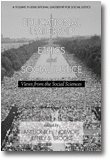
Educational Leadership for Ethics and Social Justice
Views from the Social Sciences
Edited by:
Anthony H. Normore, California State University Dominguez Hills
Jeffrey S. Brooks, University of Idaho
A volume in the series: Educational Leadership for Social Justice. Editor(s): Jeffrey S. Brooks, Curtin University. Denise E. Armstrong, Brock University. Ira Bogotch, Florida Atlantic University. Sandra Harris, Lamar University. Whitney Sherman Newcomb, Virginia Commonwealth University. George Theoharis, Syracuse University.
Published 2014
The purpose of this book is to examine and learn lessons from the way leadership for social justice is conceptualized in several disciplines and to consider how these lessons might improve the preparation and practice of school leaders. In particular, we examine philosophy, anthropology, sociology, economics, political science, public policy, and psychology. Our contention is that the field of educational leadership might consider taking a step backward in order to take several forward. That is, educational leadership researchers might re-examine social justice, both in terms of social and individual dynamics and as disciplinary-specific, multidisciplinary and interdisciplinary phenomenon. By adopting this approach, we can connect and extend long-established lines of conceptual and empirical inquiry and thereby gain insights that may otherwise be overlooked or assumed. This holds great promise for generating, refining, and testing theories of social justice in educational leadership and will help strengthen already vibrant lines of inquiry. That is, rather than citing a single, or a few, works out of their disciplinary context it might be more fruitful to situate educational leadership for social justice research in their respective traditions. This could be carried out by extending extant lines of inquiry in educational leadership research and then incorporating lessons gleaned from this work into innovative practice. For example, why not more clearly establish lines of educational leadership and justice research into the Philosophy of Social Justice, Economics of Social Justice, Political Studies of Social Justice , Sociology of Social Justice, Anthropology of Social Justice, and the Public Policy of Social Justice as focused and discrete areas of inquiry?
Once this new orientation toward the knowledge base of social justice and educational leadership is laid, we might then seek to explore some of the natural connections between traditions before ultimately investigating justice in educational leadership through a free association of ideas as the worlds of practice and research co-construct a “new” language they can use to discuss educational leadership. Such an endeavor may demand reconceptualization of both the processes and products of collaborative research and the communication of findings, but it will demand a breaking-down of methodological and epistemological biases and a more meaningful level and type of engagement between primary and applied knowledge bases.
CONTENTS
Series Editor’s Preface, Jeffrey S. Brooks. Foreword, Gary L. Anderson. Introduction, Anthony H. Normore and Jeffrey S. Brooks. The Strategic Merging of Political Orientation and Social Justice Leadership, Sarah Diem and Bradley W. Carpenter. Positive Psychology as a Foundation for Social Justice Leadership,
-
Paperback9781623965358
Web price: $45.04 (Reg. 52.99)
-
Hardcover9781623965365
Web price: $80.74 (Reg. 94.99)
- eBook9781623965372

- EDU001000 - EDUCATION: ADMINISTRATION: General
- EDU029040 - EDUCATION: TEACHING METHODS & MATERIALS: Social Science
- EDU032000 - EDUCATION: Leadership
-
 Adult Intentions, Student Perceptions
How Restorative Justice is Used in Schools to Control and to Engage
Adult Intentions, Student Perceptions
How Restorative Justice is Used in Schools to Control and to Engage
-
 Crossing the Bridge of the Digital Divide
A Walk with Global Leaders
Crossing the Bridge of the Digital Divide
A Walk with Global Leaders
-
 Dear Gay, Lesbian, Bisexual, And Transgender Teacher
Letters Of Advice To Help You Find Your Way
Dear Gay, Lesbian, Bisexual, And Transgender Teacher
Letters Of Advice To Help You Find Your Way
-
 Envisioning a Critical Race Praxis in K-12 Education Through Counter-Storytelling
Envisioning a Critical Race Praxis in K-12 Education Through Counter-Storytelling
-
 Restorative Practice Meets Social Justice
Un-Silencing the Voices of "At-Promise" Student Populations
Restorative Practice Meets Social Justice
Un-Silencing the Voices of "At-Promise" Student Populations
-
 School Leadership in a Diverse Society
Helping Schools Prepare all Students for Success (2nd Edition)
School Leadership in a Diverse Society
Helping Schools Prepare all Students for Success (2nd Edition)
-
 Within Reach
Providing Universal Access to the Four Pillars of Literacy
Within Reach
Providing Universal Access to the Four Pillars of Literacy

